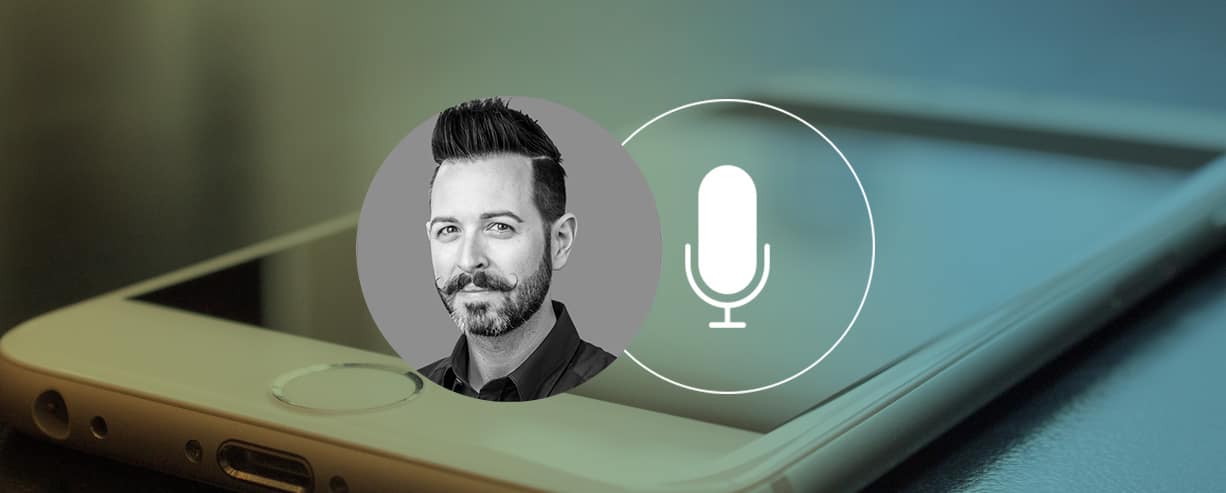
Our interview with Founder and Wizard of Moz Rand Fishkin on the Mobile First Podcast (Ep. 27)
- Podcast /
- Product Leadership /
The better I know myself and the better I know my team, the better we can all do.
Rand Fishkin uses the ludicrous title, Wizard of Moz. He’s founder and former CEO of Moz, board member at presentation software startup Haiku Deck, co-author of a pair of books on SEO, and co-founder of Inbound.org. Rand’s an unsaveable addict of all things content, search, & social on the web, from his multiple blogs to Twitter, Google+, Facebook, LinkedIn, and a shared Instagram account. In his miniscule spare time, he likes to galavant around the world with Geraldine and then read about it on her superbly enjoyable travel blog.
How to get this week’s and past podcast episodes:
The Mobile First podcast is available for free on iTunes where you can easily download it straight to your computer or mobile device. We encourage you to subscribe to the Mobile First podcast on iTunes so you won’t miss an episode. If you are an Android user, you can also download the podcast for free through Stitcher. If you don’t have access through iTunes or your phone, you can download the podcast here or listen straight from the player below:
Here are the highlights of our conversation with our guest:
Helping people succeed in their professional careers and entrepreneurial ventures is and has been Rand’s passion. This calling was inspired because he was an accidental entrepreneur himself and really got his hands dirty in the SEO world before it snowballed into something.
The philosophy of helping people without asking for return has built up a lot of goodwill and thereby has been instrumental in building their business and their overall success.
Rand discusses a Twitter quote, ‘The best way to sell something – don’t sell anything. Earn the awareness, respect, and trust of those who might buy.’
Start-ups inherit the strengths and weaknesses of their founders and Rand’s opportunities are software engineering and technical operations. He feels that Moz had inherited this and is the core of what holds them back in terms of scaling.
Rand gets transparent and shares his combination for disaster: relying on personal intuition and sense of the market, getting greedy and getting a lot of funding. He further shares his broken theories and his realization that they do not have to lead the market; they just need to follow where it goes.
Their philosophical approach to pivot towards focusing on the ‘now’ and the story behind one of Moz’s most successful launch ever.
About his experience when they did a CEO Swap for a week and how this gave him the insights what SEO world was like, what consultants were dealing with, how their processes were working, and what their struggles were.
How the fact that there is no product fit in SEO, there is just the constant pursuit drives them to constantly practice; and how he sees the future and what he thinks is next; and his thoughts about the challenges in standing out from the entire noisy crowd.
The things that Moz, and Rand personally, are working on as of this time including building a better system of keyword research through URLs, the Moz bar, investing in a fund called Backstage Capital, writing a book around transparency and veering away from the mistakes that conventional startup wisdom biases us towards.
Rapid Fire Questions
- What is your definition of innovation?
I like innovation that creates a true competitive advantage—not just a leap forward in process, design, or thinking, but something that’s defensible and hard to replicate. That might be a definition of the type of innovation I’m seeking rather than the broadest dictionary meaning.
- Would you put more emphasis on the idea or the execution? How would you weigh each of them and why?
Ideas are hard to change, and hard to improve once you’ve gone down the path of creating something from them. Execution can be improved with time, with resources, with people, and with effort. Thus, my bias is to have a great idea, spend a lot of time iterating on it, improving it, validating it, and adding to it before you execute. Far better to say “we need to get better at skill X” rather than “we need to pivot our entire organization to do this other thing.”
- What is your biggest learning lesson on your journey so far?
Biggest is hard, but one of the big ones is certainly that the better I know myself and the better I know my team, the better we can all do. Self-knowledge and empathy are two superpowers in growing a company.
- What is your favorite business book?
I love The Billionaire Who Wasn’t. I also found Steve Krug’s Don’t Make Me Think to be the most consistently useful book about building digital experiences, and amazingly, he wrote it in 2000—17 years ago!
- What is your favorite digital resource?
Twitter has been a goldmine for me. I find great things to read, ways to upgrade my skills, people and brands to follow and learn from, and interactions/conversations that build remarkable connections.
- What is your favorite app and why?
Pocket. I use it constantly to save articles and read them on planes or during downtime.